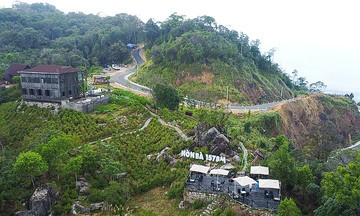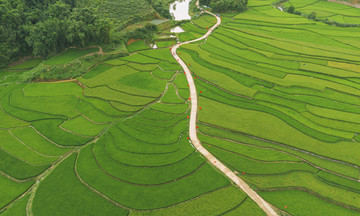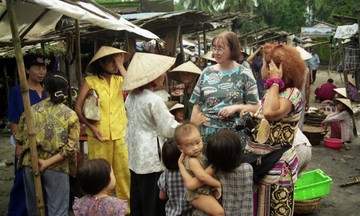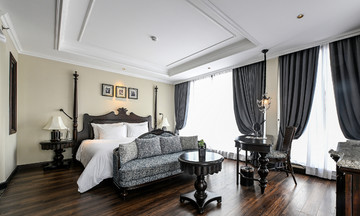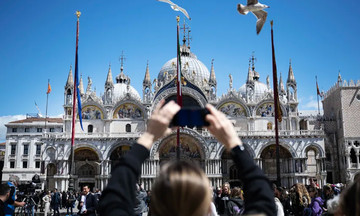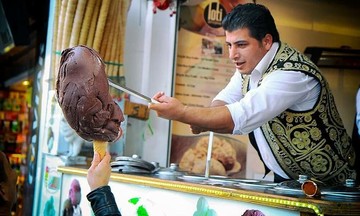Tens of thousands of Vietnamese people migrated to Hong Kong after 1975. According to the Migration Policy Institute, an estimated 12,000 Vietnamese people were living there by 2024, forming a small but influential community.
Compared to the more prevalent Thai cuisine, Vietnamese food has struggled to establish a high-end image in Hong Kong, according to many chefs. "Not many Vietnamese restaurants in Hong Kong focus on authenticity and quality, but that's changing," said Raymond Wong, founder of Bep Vietnamese Kitchen in Central.
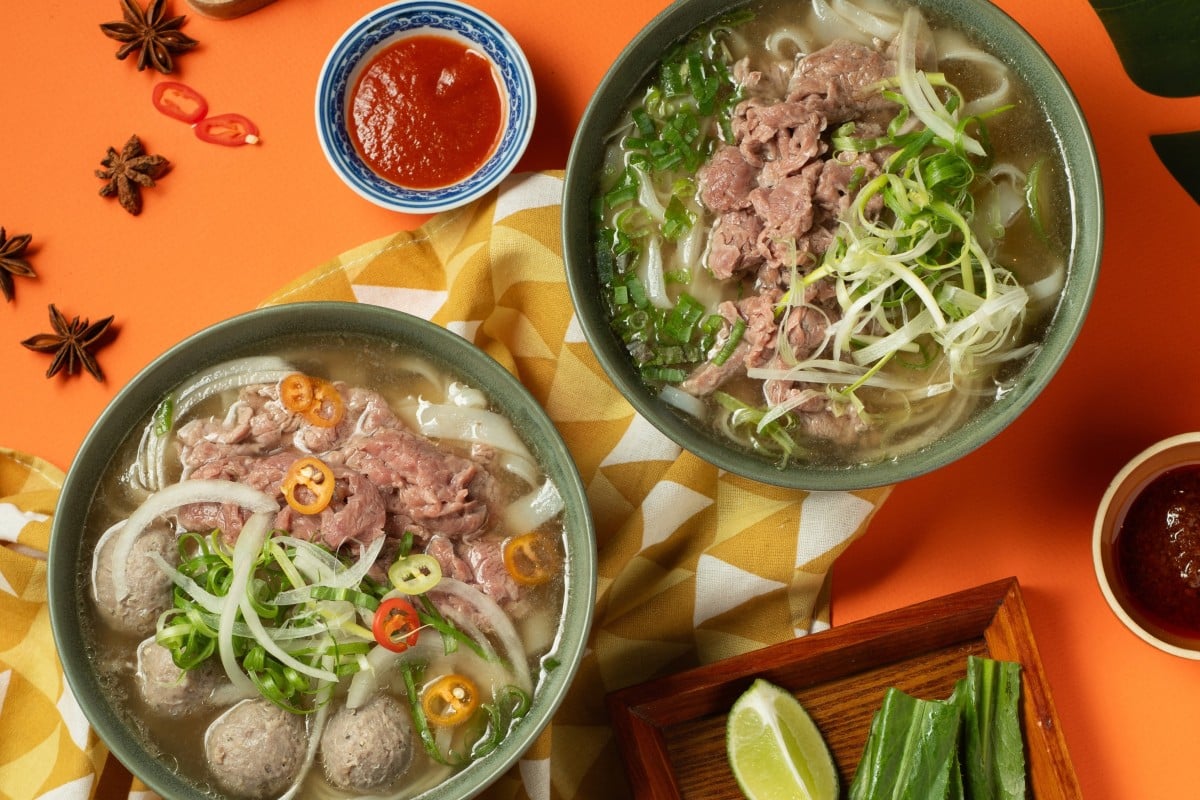 |
Southern-style pho at Bep Vietnamese Kitchen. Photo: Bep Vietnamese Kitchen |
Southern-style pho at Bep Vietnamese Kitchen. Photo: Bep Vietnamese Kitchen
Wong, who is Chinese but was born in Vietnam, opened his first Vietnamese restaurant in Hong Kong in 2003. Driven by his love for the food of his homeland, he imports ingredients directly from Vietnam, including fish sauce, herbs, chilies, and rice paper. The restaurant's pho broth is simmered with beef bones and two types of brisket for depth of flavor, while their broken rice dishes feature shaken beef with black pepper sauce and grilled ribs.
Kenny Tse, co-founder of Pho Viet Authentic Hanoi Cuisine in Mong Kok, said he was captivated by the sophistication of Vietnamese cuisine after years of working in Southeast Asian restaurants in Hong Kong.
"Before opening the restaurant, my partner Julie and I traveled extensively throughout Vietnam to explore regional cuisines. It was the lack of authentic Vietnamese food in Hong Kong that motivated us to start our own place," Tse said.
Tse and Julie return to Hanoi, Julie's hometown, every three months to find inspiration for new dishes and to source ingredients. About 70% of their ingredients are imported from northern Vietnam. Besides bun cha, the dish featured on Anthony Bourdain's "Parts Unknown" with former US President Obama, the restaurant also serves other Vietnamese specialties like bun rieu (crab noodle soup), banh mi, and bun thit nuong (grilled pork with vermicelli noodles).
In Sheung Wan, An Choi, founded by husband and wife Kay Mai and Lewis Dai in 2023, also embraces traditional cooking. During the Covid-19 lockdown, the couple began developing their Vietnamese menu in their home kitchen.
"People in Hong Kong often think of Vietnamese food as simple, but good food actually requires a lot of time and effort," Mai said.
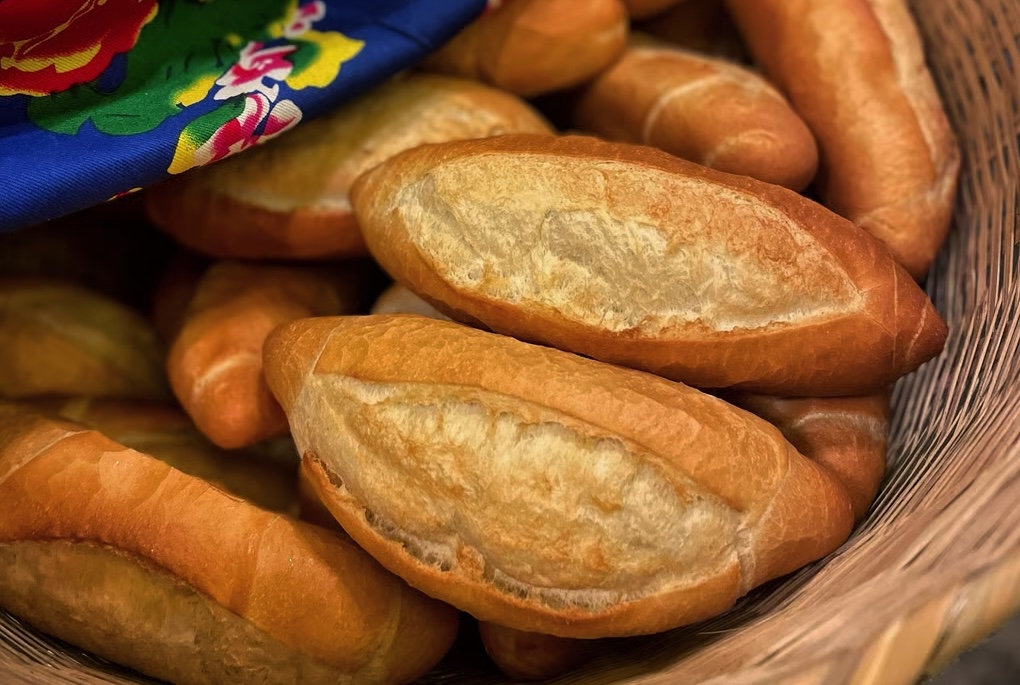 |
Freshly baked banh mi at An Choi. Photo: An Choi |
Freshly baked banh mi at An Choi. Photo: An Choi
An Choi's banh mi is made entirely by hand twice a day. The pho broth, pate, egg sauce, pickles, and dipping sauces are all made in-house to ensure "clear, light, balanced, and slightly spicy" flavors, staying true to traditional Vietnamese tastes.
Also passionate about banh mi, Kiki Phung, a Vietnamese content creator living in Hong Kong, opened Banh Mi Nem in Wan Chai in 2024, inspired by her mother's family recipes.
"I'm very picky when it comes to food because my mother was a chef. My banh mi follows a southern style, rich in flavor and layered with aromas," Phung said. Despite being a small takeaway shop, Banh Mi Nem opened a second branch in Central due to its popularity.
For diners seeking a more upscale experience, Sep Hong Kong in Central, open since 2022, offers Indochine-style Vietnamese cuisine. Chef DoBee Lam, who lived in Vietnam for seven years and has a Vietnamese wife, said he combines wood-fired grilling techniques with imported ingredients to create depth of flavor.
One of the restaurant's signature dishes is smoked cod served with kumquat fish sauce imported from Phu Quoc Island.
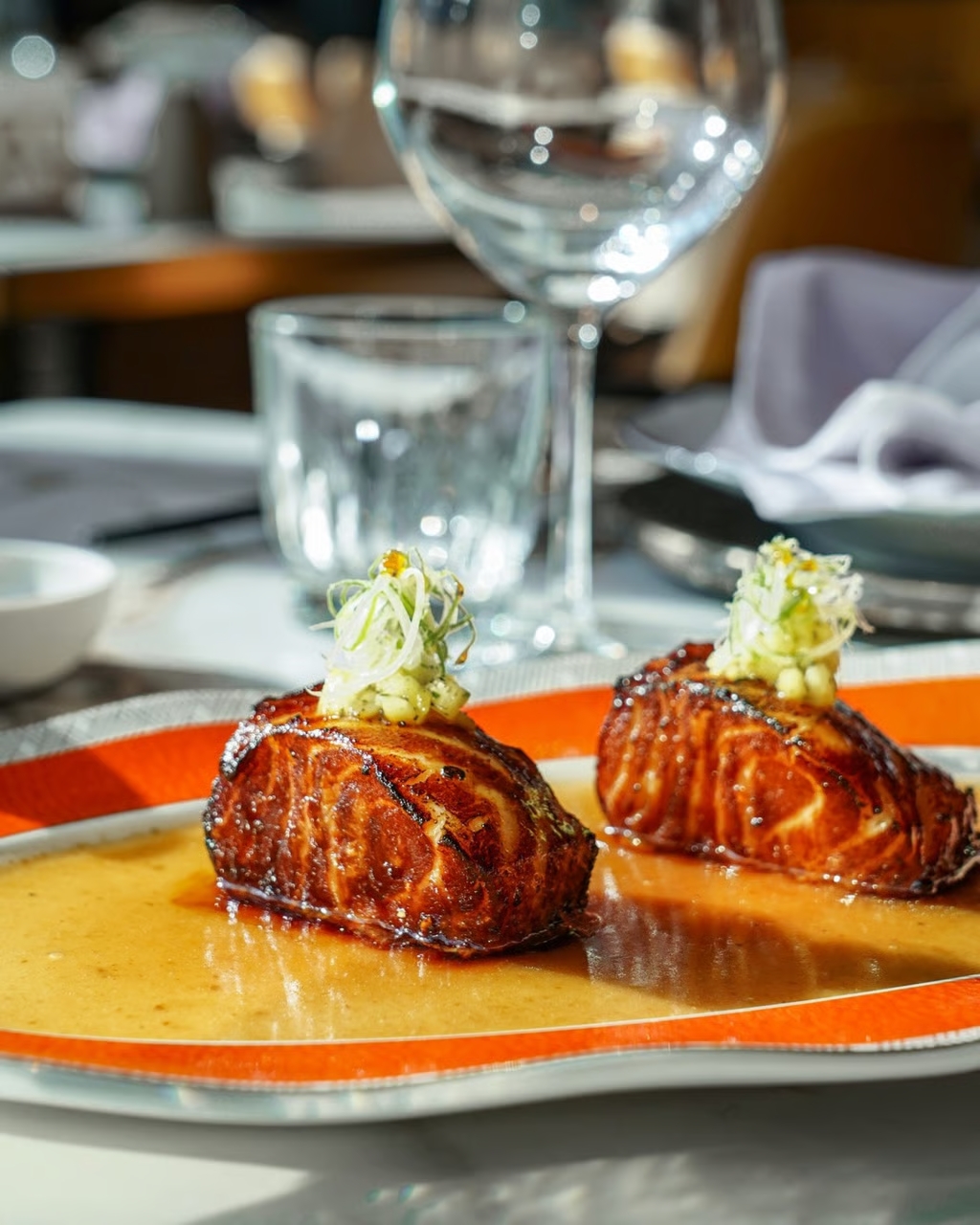 |
Smoked cod with Phu Quoc kumquat fish sauce. Photo: Instagram/sephongkong |
Smoked cod with Phu Quoc kumquat fish sauce. Photo: Instagram/sephongkong
"I don't change things too much, but I keep the Vietnamese spirit, combining it with international ingredients to elevate the dishes," Lam said.
From humble street food to high-end versions, Vietnamese cuisine is thriving in Hong Kong, led by passionate Vietnamese expatriates who see food as not just a taste, but also an identity.
Mai Phuong (SCMP)



